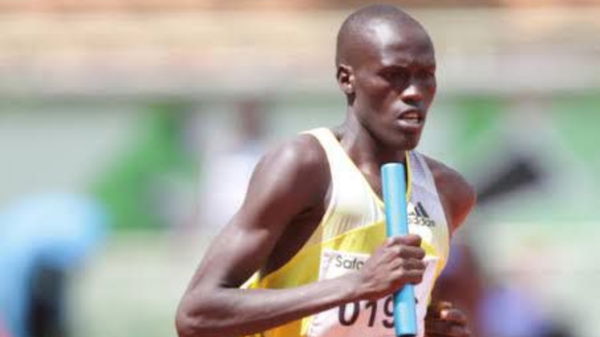

Vincent Malakwen’s journey has been quite the rollercoaster, filled with highs and gut-wrenching lows. Once celebrated as a middle-distance track and field runner, but now his life really highlights how quickly fortunes can shift—like a house of cards. The 1996 Bislett Games in Oslo was a major milestone for him, even though he finished in sixth place. He’s got quite an impressive list of achievements, including winning the 1500m race at the 1995 All-African Games and taking first place at the FBK Hengelo Games in 1997.
Once adorned with glittery trophies that celebrated his achievements, Vincent Malakwen’s home now showcases these awards covered in dust. The medals that hang from the walls tell tales of triumph in middle-distance races, but today, Vincent’s life is a far cry from those proud moments.
Interestingly, Vincent started out as a footballer playing on the right wing, but his coach, Kimobwa, urged him to switch to running. “I was told not to play football because it would injure my legs,” he recalled. “Athletics was fun because we enjoyed separate meals from other students. That gave me the motivation to keep going.” With his incredible speed and determination, it’s no wonder people affectionately called him a “crazy man” for how fiercely he pursued his goals.
ADVERTISEMENT
Article continues below this ad

However, everything changed when Vincent’s manager, Kim McDonald, passed away in November 2001. His sudden death from a heart attack while on holiday in Brisbane left Vincent without the support and connections he desperately needed to keep his track and field career alive.
ADVERTISEMENT
Article continues below this ad
“I picked up an injury during the trials after falling down,” he explained, looking back on that tough period. “I think it was a set-up because that is when I was at the peak of my career.” It’s hard to hear him reflect on those challenges, especially when he was so close to realizing his full potential. Today, Vincent’s life is far cry from those glory days. He struggles to make ends meet, often taking on manual jobs that earn him just Ksh200 to Ksh300 a day—barely enough to cover basic needs. “It’s just terrible,” he admitted, laying bare the harsh reality he faces. But still, someone in his life believes he can still achieve everything.
What’s your perspective on:
Does Vincent Malakwen's fall from grace highlight the harsh realities of life after sports?
Have an interesting take?
The inspiring story of Vincent Malakwen
Born in 1974 in Kapchemutwo, Iten, Elgeyo Marakwet County, Malakwen found his passion for track and field at Marakwet Boys High School. Vincent kicked off his running journey in 1991 while he was in his second year of high school. As he developed his skills, Malakwen found himself racing alongside legends like David Rudisha and Wilson Kipketer. Their inter-school competitions not only pushed him to improve but also created lasting friendships.
ADVERTISEMENT
Article continues below this ad
He also credits much of his success to his mentor, Moses Kiptanui, and the time spent with other elite athletes like Daniel Komen and Sally Barsosio. Even Vincent Malakwen won the 1500m race at the 1995 All African Games, triumphed at the FBK Hengelo Games in 1997, and secured second place at the 1996 Milano IAAF Permit Games with a time of 1:44:95.
At just 18, he made a name for himself in track and field at the Seoul Games, where he ran an impressive 1:48 in the 800m. By the mid-’90s, he was clocking times like 1:43 in Denmark and England, establishing himself as a serious contender. But then, life threw him a curveball. Yet, amid the struggles, his wife, Jane, holds onto hope. “Malakwen never gives up,” she said with conviction. They have a daughter, Reign Jebiwott, who’s also showing promise in athletics, so there’s a glimmer of hope that Vincent’s legacy might continue through her. Once celebrated for his incredible accomplishments, he now navigates daily hardships and shows how quickly circumstances can change in sports.
Have something to say?
Let the world know your perspective.


Debate
Does Vincent Malakwen's fall from grace highlight the harsh realities of life after sports?